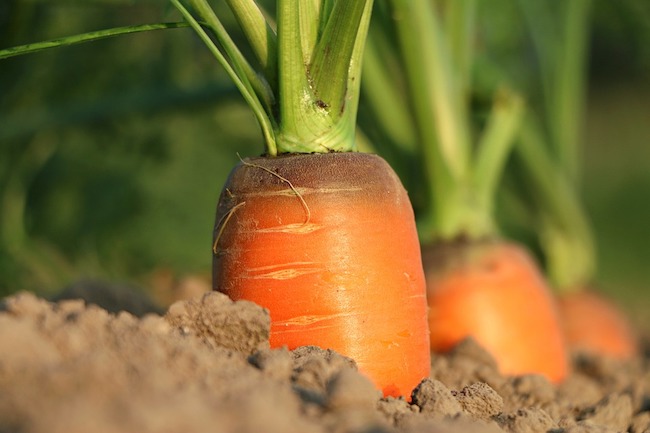In Defense of Organic Farming by Marie Hawthorne for The Organic Prepper
By now, even the mainstream media widely acknowledges the fertilizer shortage. Between fertilizer shortages, drought, shipping problems, and fuel shortages we face an ugly winter. And naturally, the technocratic class has been using this situation to bemoan the “Folly of Organic Farming,” as Bjorn Lomborg (same Bjorn?) called it in a recent Wall Street Journal editorial, pointing to the coming food crisis as another reason why we need to trust scientists and academic experts for everything.
Don’t panic. If you’re interested in growing some of your own food but are not sure where to start, talk of the fertilizer shortages may find you feeling helpless and confused. Don’t let the issues surrounding commercial food production discourage you from starting your own urban/suburban food production scheme.
Organic food production is not as ridiculous as people like Mr. Lomborg like to make it sound. I say this as someone who has been producing much of her own food organically, both in a suburban and a semi-rural setting, for years. But we need to mentally separate the issues surrounding industrial-scale food production from what you’re likely to encounter in planning your own garden.
Large-scale commercial farming does face serious problems.
In my area, it’s already noticeable. I attend a church about 25 miles away, and I drive through farm country to get there. I’ve been going there for years. Normally, there is a mixture of corn, alfalfa, hay, and sunflowers, but mostly corn. This year there’s far less corn. People have been planting more alfalfa because it doesn’t take much fertilizer.
Modern plant varieties have been bred to produce heavily with a lot of chemical inputs.
Correspondingly, the chemical inputs have depleted much of the microbial life within the soil. So, yes, if you develop a system with plants that rely on chemicals and then remove the chemicals, this will badly affect your crop yield. That is happening right now in Sri Lanka, as Mr. Lomborg points out in his article, and used as a blanket condemnation of organic agriculture.
But organic farming is more than just not dumping chemicals on your plants.
It’s a system of feeding the soil that feeds your plants. If you want to learn more about producing your own food, do some research. My personal favorite books on the subject are Howard Garrett’s Texas Gardening the Natural Way and John Seymour’s The Self-Sufficient Life and How to Live It.
I have practiced this style of gardening both in a humid subtropical climate and in a semiarid steppe climate. Gardening in a semiarid steppe is very difficult. Making compost takes longer because of the low humidity and rainfall. I also need to enclose everything to protect both the plants and the compost heap from the wind. It’s difficult, but not impossible.
Conventional wisdom states that only high-efficiency, industrial-scale agriculture can feed the world. Proponents of industrial agriculture point to the huge gains in crop yields made since the Green Revolution in the 1960s and 1970s. They also point to regularly-occurring famines in various parts of the world as evidence that we need to produce more food.
However, famines have many causes besides environmental constraints.
The biggest famines of the past 100 years have been caused not by environmental disasters but by political ones. Both the Soviet famine in the 1930s and the Chinese famine in the late 1950s occurred when Communist governments collectivized agriculture.
The famines occurring in Africa today are political. The Yemenis are starving to death, not because they can’t produce food and not because others don’t have food to share; but because their farmland has been targeted for destruction and the Saudis have only allowed small amounts of aid.




